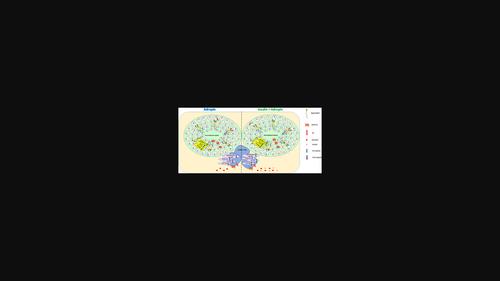Adropin may promote insulin stimulated steroidogenesis and spermatogenesis in adult mice testes
IF 16.4
1区 化学
Q1 CHEMISTRY, MULTIDISCIPLINARY
引用次数: 0
Abstract
Adropin is a versatile peptide which was discovered as a novel metabolic hormone that is involved in the regulation of lipid and glucose homeostasis. However, its possible role in the testicular function is not yet understood. The aim of our study was to explore the distribution pattern of adropin and GPR19 in various cell types and its possible role in testicular functions of adult mice. Immunohistochemical study revealed the intense immunoreactivity of adropin in the Leydig cells, while GPR19 showed intense immunoreactivity in the pachytene spermatocytes and mild immunoreactivity in Leydig cells and primary as well as secondary spermatocytes in mouse testis. Enho mRNA was also found to be expressed in the mouse testis. These findings suggested that adropin-GPR19 signaling may act in autocrine/paracrine manner to modulate testicular functions. Furthermore, to find out the direct role of adropin in the testicular function, in vitro study was performed in which testicular slices were cultured with adropin alone (10 and 100 ng/mL) and in combination with insulin (5 μg/mL). Adropin alone inhibited testicular testosterone synthesis by inhibiting the expression of P450-SCC, 3β-HSD, and 17β-HSD while along with insulin stimulated the testicular testosterone synthesis by increasing the expression of GPR19, IR, StAR, P450-SCC, 3β-HSD, and 17β-HSD. Adropin alone or in combination with insulin promoted germ cell survival and proliferation by upregulating the expression of PCNA, Bcl2, and pERK1/2. Thus, it can be concluded that adropin-GPR19 signaling promotes insulin stimulated steroidogenesis and germ cell survival as well as proliferation in the mice testes in an autocrine/paracrine manner.

肾上腺素可能促进成年小鼠睾丸中胰岛素刺激的类固醇生成和精子生成。
肾上腺素是一种多功能肽,是一种新型代谢激素,参与调节脂质和葡萄糖稳态。然而,它在睾丸功能中的可能作用尚不清楚。本研究的目的是探讨阿曲平和GPR19在不同细胞类型中的分布模式及其在成年小鼠睾丸功能中的可能作用。免疫组化研究显示adropin在Leydig细胞中具有强烈的免疫反应性,而GPR19在粗线期精母细胞中具有较强的免疫反应,在小鼠睾丸的Leydig、初级和次级精母细胞均具有轻度免疫反应性。Enho mRNA也在小鼠睾丸中表达。这些发现表明adropin-GPR19信号可能以自分泌/旁分泌方式调节睾丸功能。此外,为了找出阿曲平在睾丸功能中的直接作用,进行了体外研究,将睾丸切片与阿曲平单独培养(10和100 ng/mL)和与胰岛素(5 μg/mL)。Adropin单独通过抑制P450-SCC、3β-HSD和17β-HSD的表达来抑制睾丸睾酮的合成,而与胰岛素一起通过增加GPR19、IR、StAR、P450-SCC和3β-HSD的表达来刺激睾丸睾酮合成。Adropin单独或与胰岛素联合通过上调PCNA、Bcl2和pERK1/2的表达来促进生殖细胞的存活和增殖。因此,可以得出结论,adropin-GPR19信号传导以自分泌/旁分泌方式促进胰岛素刺激的类固醇生成和生殖细胞存活以及小鼠睾丸中的增殖。
本文章由计算机程序翻译,如有差异,请以英文原文为准。
求助全文
约1分钟内获得全文
求助全文
来源期刊

Accounts of Chemical Research
化学-化学综合
CiteScore
31.40
自引率
1.10%
发文量
312
审稿时长
2 months
期刊介绍:
Accounts of Chemical Research presents short, concise and critical articles offering easy-to-read overviews of basic research and applications in all areas of chemistry and biochemistry. These short reviews focus on research from the author’s own laboratory and are designed to teach the reader about a research project. In addition, Accounts of Chemical Research publishes commentaries that give an informed opinion on a current research problem. Special Issues online are devoted to a single topic of unusual activity and significance.
Accounts of Chemical Research replaces the traditional article abstract with an article "Conspectus." These entries synopsize the research affording the reader a closer look at the content and significance of an article. Through this provision of a more detailed description of the article contents, the Conspectus enhances the article's discoverability by search engines and the exposure for the research.
 求助内容:
求助内容: 应助结果提醒方式:
应助结果提醒方式:


